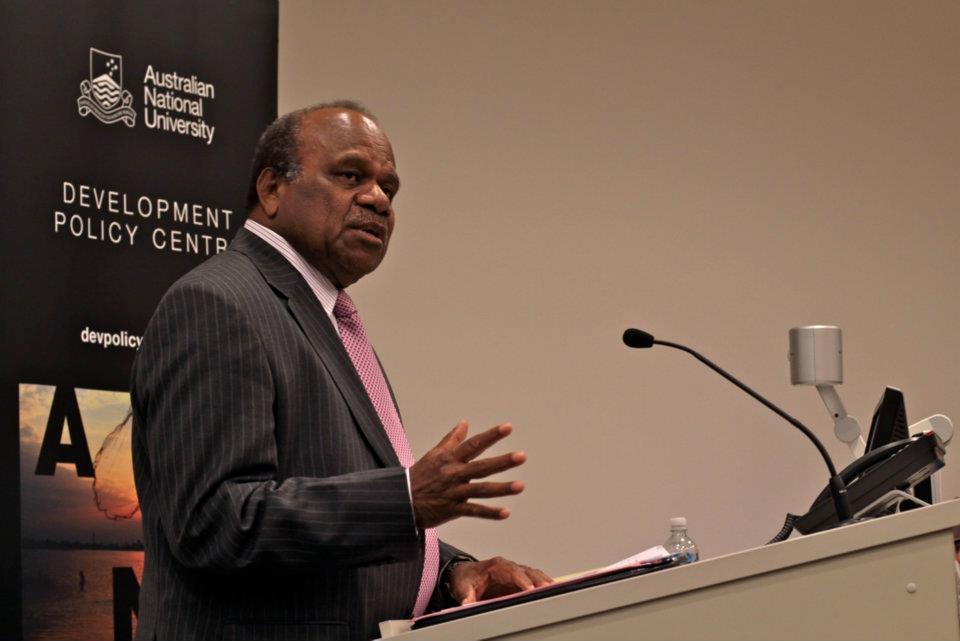On September 21 Sir Rabbie Namaliu, veteran Papua New Guinea politician and former Prime Minister of PNG from 1988 to 1992, gave a public lecture at the ANU on ‘the future of PNG and the role of Australia’. Below, Jonathan Pryke summarises some of the key points of his presentation (a video of his presentation is available here).
The challenges of unprecedented growth
Sir Rabbie began by highlighting that from 2002 PNG has been going through a period of unprecedented and rapid economic growth. One of the key challenges of this period is that the government has failed to redistribute the windfall revenues associated with this growth to where they are most needed.
In PNG, particularly in the rural areas, questions are being asked about where, if PNG has been experiencing a boom, the money is going. With a supplementary budget being passed every year from 2006, the population has the right to ask why hospitals, roads, schools and ports aren’t being fixed.
This in turn then led to major questions on governance, oversight and the misappropriation of funds within the Somare government. Sir Rabbie argued that these questions were one of the main drivers of the political changes that have recently taken place culminating in the forming of a new government under the leadership of Peter O’Neill.
Changes are already being made
With the new government in place, the PM has moved very quickly to outline his priorities between now and the election, with governance taking a major role. Education has become another priority, with the government looking to address the lack of trained manpower to service the high levels of economic growth, by making a firm commitment to free education up until 12th grade from 2012. Sir Rabbie stressed that there would be significant challenges in implementing free education throughout PNG. Health is another sector that has been made mention of in the new government’s priorities.
Sir Rabbie argued that performance in these sectors must be improved significantly in the coming months to demonstrate to the people that the government allocating funds to specific areas, such as health and education, can lead to results.
With the LNG and other major resource projects coming online soon, providing even more revenues to government, Sir Rabbie was confident that the PNG government should be able to tackle at least some of these challenges.
Australia’s role
Sir Rabbie acknowledged that a lot of the help that PNG has received from Australia in the past has been through development assistance programs, but, as the economy continues to grow, this relationship is quickly changing. Trade, investment and economic cooperation will be the key to PNG’s future. Australia can do much more the help PNG diversify its export markets beyond commodities by helping PNG agricultural, marine and forestry sectors reach Australia’s import standards. This would allow a significantly larger base of the population, beyond the commodities sector, to share in the benefits of economic growth.
Overall, Sir Rabie argued, there should be a gradual re-focusing of the Australia-PNG relationship away from development assistance towards economic cooperation.
Jonathan Pryke is a Researcher at the Development Policy Centre.


Leave a Comment